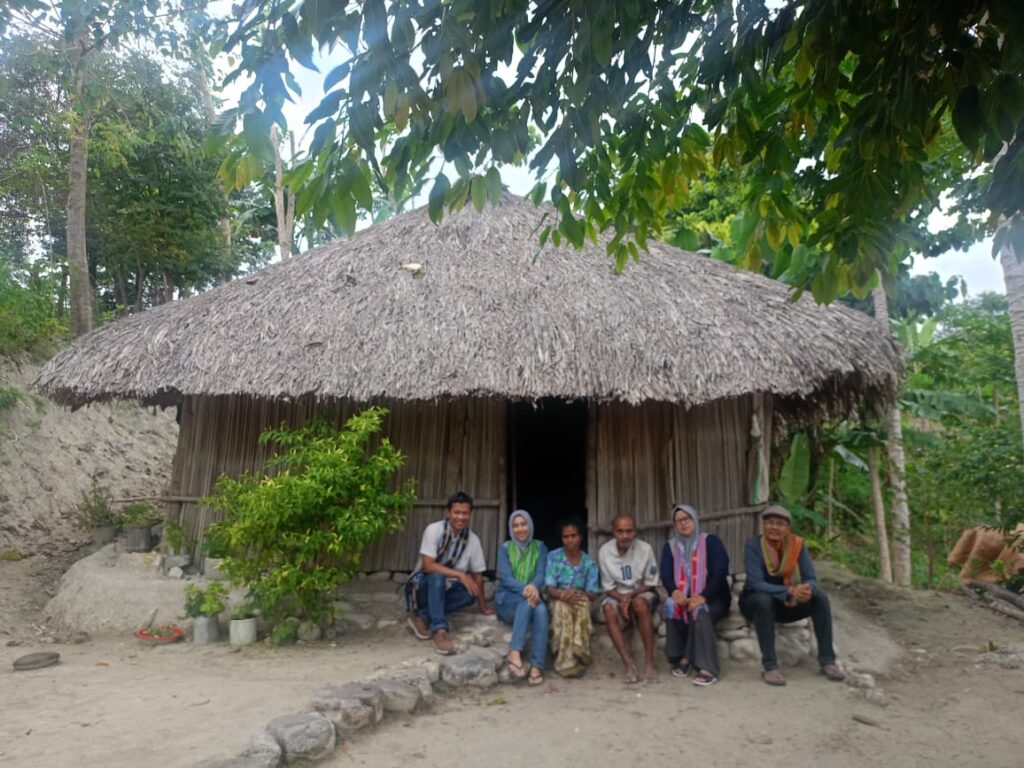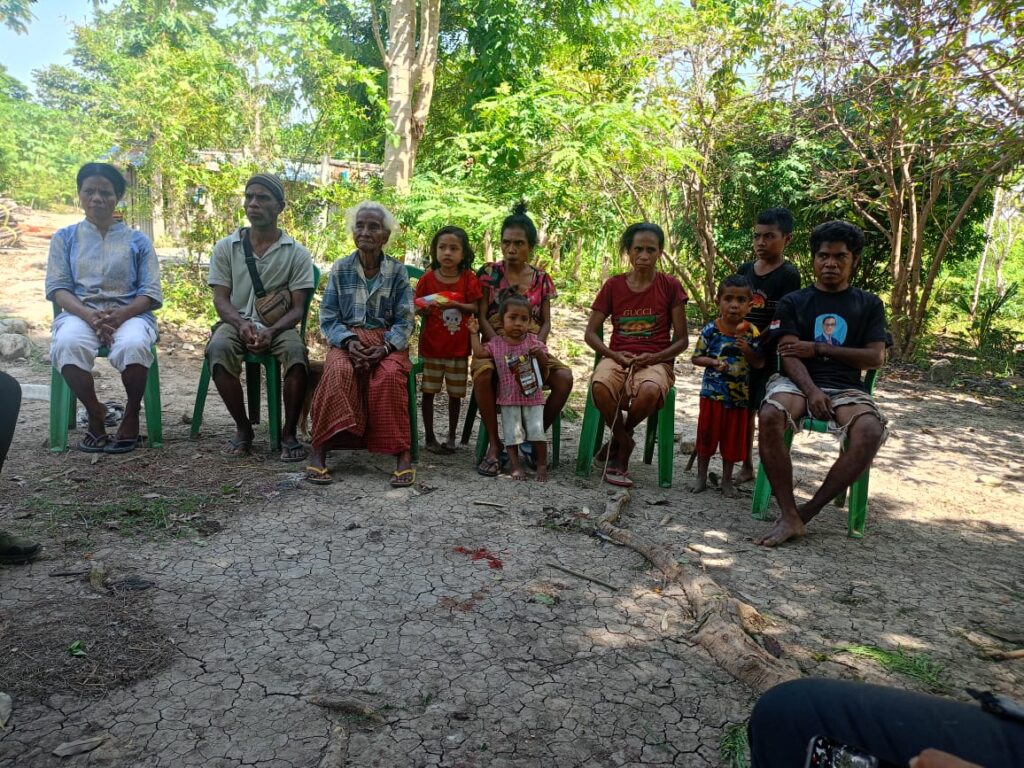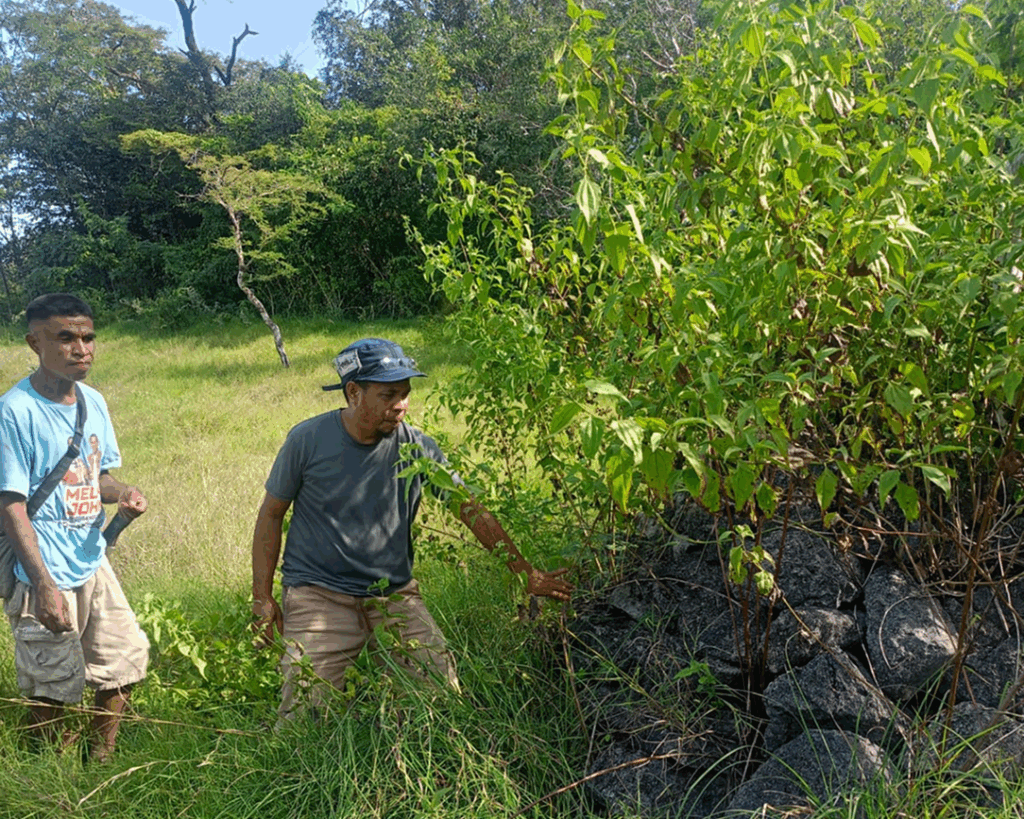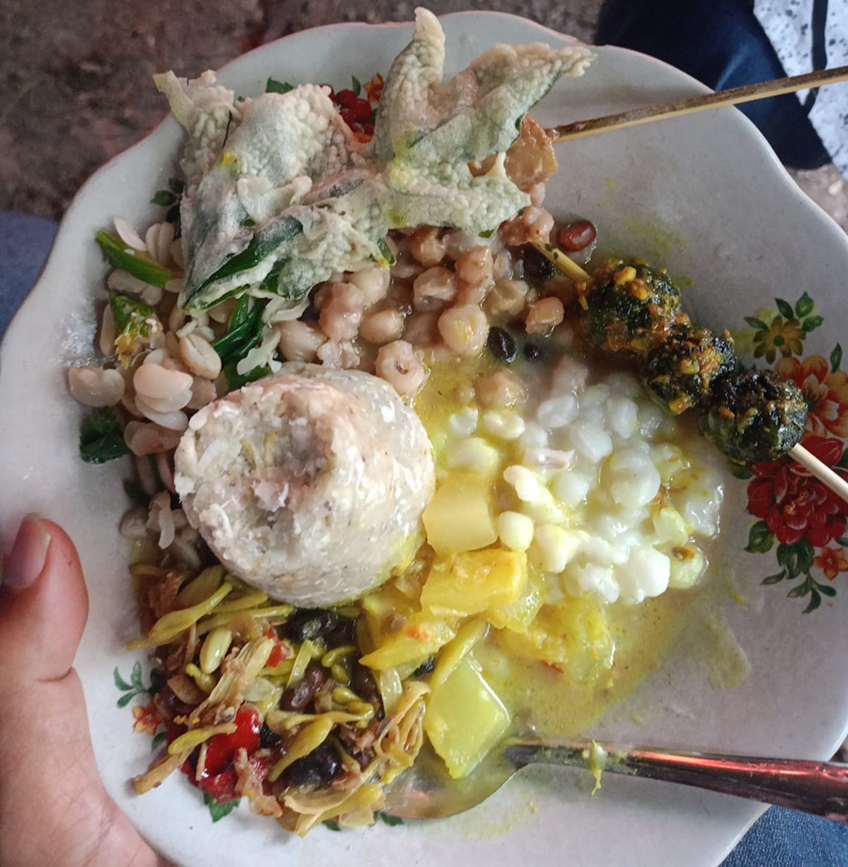

Five researchers from the Centre for Human Rights, Multiculturalism, and Migration (CHRM2) University of Jember undertook fieldwork in Pubabu as part of a year-long research project funded by the Badan Riset dan Inovasi Nasional (BRIN). The fieldwork is a continuation of previous projects which covered the Tengger Indigenous People in East Java and Kinipan Indigenous People of Central Kalimantan in 2022-2023. The research project investigates the shrinking of local participation in land management and the loss of economic access for indigenous groups in these three regions.
The context of this research in Pubabu is particularly complex. In addition to losing access to their 3870 hectare sacred forest (“keo”), there is an ongoing internal conflict in Pubabu which affects the ability of the Pubabu people to reclaim the land. The group also no longer practices some rituals and does not maintain sacred sites due to the massive expansion of Christianity. These conditions are prerequisites for the Pubabu people to be classified as an indigenous group. Without this title, the Pubabu people will not be able to reclaim their sacred forest.


During the fieldwork, researchers met and interviewed several prominent figures who represent the Pubabu people, the local government of Timor Tengah Selatan, civil society organisations, and local religious leaders. With the assistance of two local researchers, Mario and Ardy, the five researchers also explored the mountainous, panoramic beauty of Pubabu.
The researchers from CHRM2 also organized a food festival and a two-day training for Pubabu people to promote local food sources. This project is funded by the Directorate of Local Beliefs and Indigenous People (KMA) of the Ministry of Culture. The Director of KMA, Samsul Hadi, engaged actively during the program together with his staff, while around 50 Pubabu people enthusiastically served local food. The food festival on the last day of the project attracted about 150 people who enjoyed exotic and delicious local foods.
